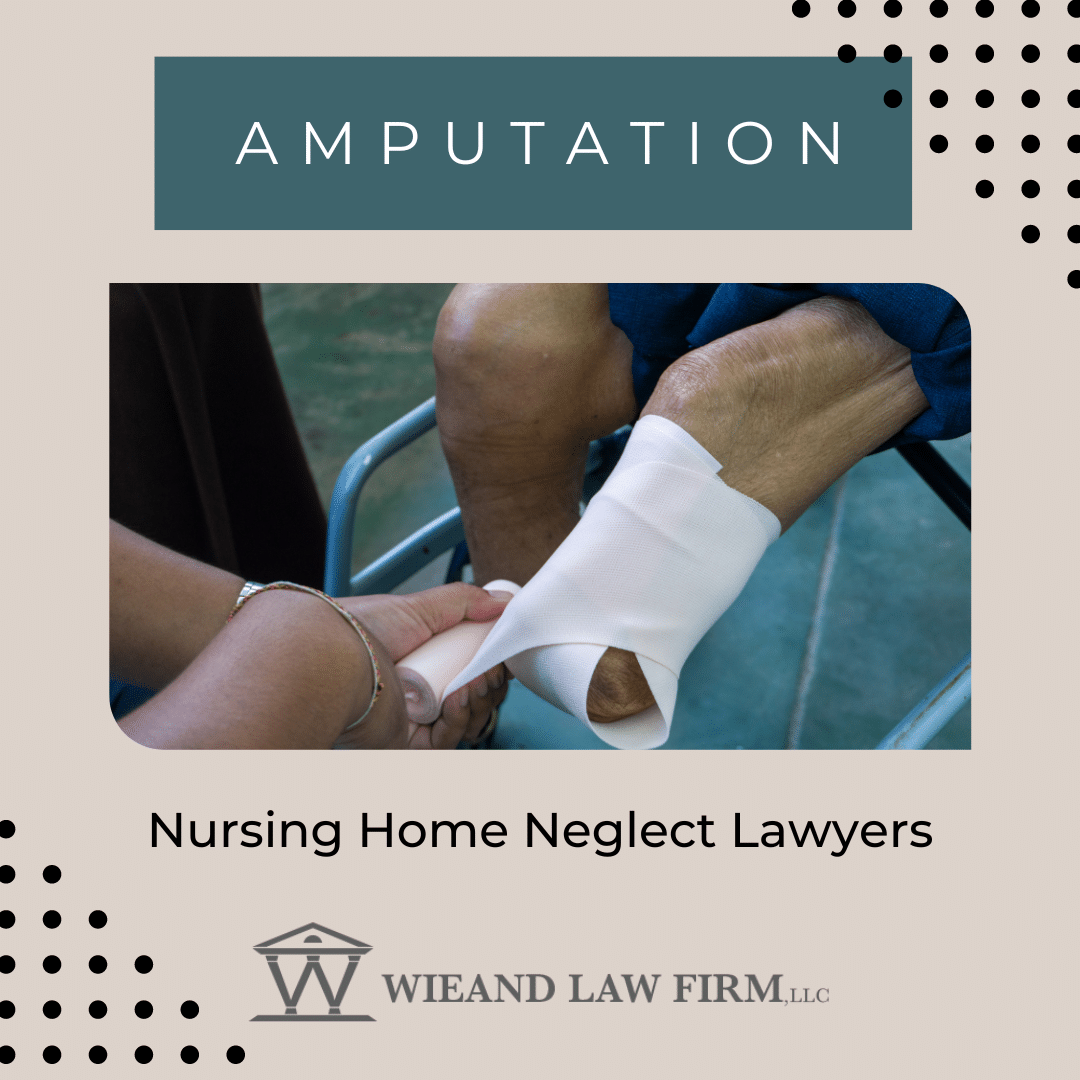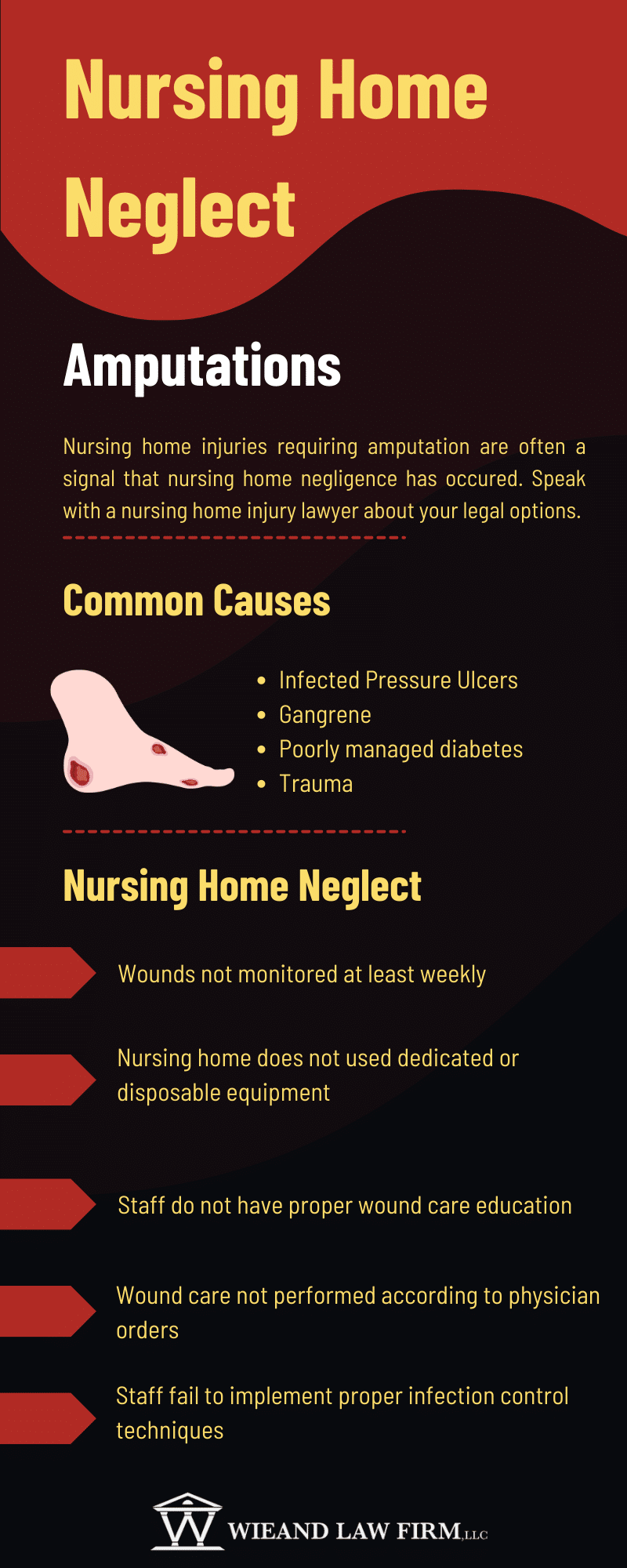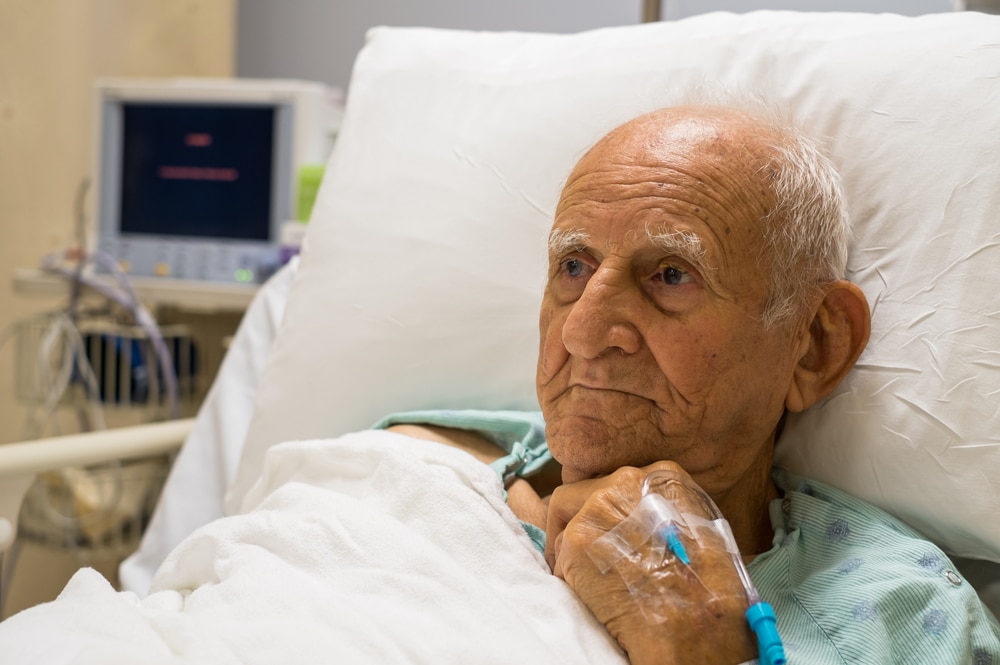 Nursing Home Lawyer in PA
Nursing Home Lawyer in PAThe nursing home injury lawyers at Wieand Law Firm handle nursing home neglect cases resulting in amputation to nursing home residents.
An amputation generally refers to removal of the whole or part of an arm, hand, leg or foot. Amputations in seniors are frequently performed because the arteries of the legs have become blocked due to hardening of the arteries, a condition known as atherosclerosis. Blockages in the arteries result in insufficient blood supply to the limb. Diabetes is a condition that can cause hardening of the arteries which increases the risk of blockage.
Seniors with diabetes are at risk for developing foot ulcers that can get worse and lead amputation of the toe, foot or leg. Many times, elderly persons with diabetes lose sensation in their foot and are unaware that an ulcer or foot problem has occurred until it is too late.
Residents who reside in nursing home with poor infection control practices or wound care practices may also be at higher risk of suffering an infection that requires amputation.
 Common Causes of Amputations from Nursing Home Neglect
Common Causes of Amputations from Nursing Home NeglectNursing home injuries requiring amputation are often a signal that nursing home negligence has occurred. Speak with nursing home injury lawyers in Pennsylvania to understand if you may be eligible for compensation from a nursing home neglect lawsuit.
Pressure ulcers, which are sometimes referred to as bedsores, are skin injuries caused by prolonged pressure. They often develop in areas where the skin covers a bony prominence of the body, such as the heels, elbows, or toes. These injuries typically develop when a nursing home resident does not receive the care they need to turn and reposition. Pressure from lying in bed, sitting in a wheelchair, or even from blankets putting pressure on a person’s toes cause a pressure ulcer to occur.
When bedsores are not properly treated, they can worsen and become infected. Infected bedsores may require amputation to prevent further complications.
Diabetes is a disease that occurs when the body can not self-regulate insulin in the body. As a result, the blood glucose in the body is too high. Many preventable nursing home amputations are related to the facility poorly managing a resident’s diabetes care. Residents with advanced diabetes may not be able to feel sensation in their extremities and may suffer from poor circulation.
Without adequate nerve sensation, residents may be unable to self-report injuries, such as wounds on the feet, that lead them susceptible to infections. Nursing homes that fail to properly assess and monitor residents with diabetes may be liable when their negligence results in the need for amputation. Victims of negligence should speak with an amputation injury lawyer about therr eligibility to pursue a nursing home neglect lawsuit.
Many amputations can be avoided with proper diabetes management and careful foot care. Nursing home caretakers are responsible to provide proper foot care to prevent residents from developing foot ulcers and other issues with the feet. Nursing home staff should implement preventative measures, such as inspecting the resident’s feet daily, ensuring that residents wash their feet daily and wear clean, dry socks and appropriate footwear. Nursing homes should arrange regular foot checkups with a doctor or podiatrist for residents with diabetes. Any callouses or foot lesions develop should be promptly treated.
Gangrene is a dangerous and sometimes fatal condition that occurs when blood flow to a large area of tissue is blocked. When an extremity does not receive blood flow, tissue death occurs. Common areas for gangrene include the necrotic feet, necrotic toes, legs, or fingers. Gangrenous tissue turns black, signaling cell death.
Gangrene is very serious and can lead to serious complications, including death. Nursing homes are responsible to identify and treat disease in a timely manner. When nursing homes fail to treat gangrene and the patient suffers an amputation, contact nursing home injury lawyers Philadelphia trusts at the Wieand Law Firm. Our attorneys can discuss your legal options, including the option to seek compensation from a nursing home neglect lawsuit.
Many amputations can be avoided with proper diabetes management and careful foot care. Nursing home caretakers are responsible to provide proper foot care to prevent residents from developing foot ulcers and other issues with the feet. Nursing home staff should implement preventative measures, such as inspecting the resident’s feet daily, ensuring that residents wash their feet daily and wear clean, dry socks and appropriate footwear. Nursing homes should arrange regular foot checkups with a doctor or podiatrist for residents with diabetes. Any callouses or foot lesions develop should be promptly treated.
Inadequate supervision can result in a variety of resident accidents. For example, thermal trauma from burns or frostbite, can result in a necrotic foot or necrotic toes. These injuries have occurred when residents have wandered away from nursing homes undetected (also called an elopement). Bone fractures that are not detected can lead to infections that result in amputation. Contact the nursing home nursing home injury lawyers at the Wieand Law Firm to discuss your potential claim.

Amputation surgery carry risk of complications and problems related to loss of limb. Elderly nursing home residents who are in poorer health may be more prone to amputation related complications. Common complications associated with amputation include:
Sometimes additional surgery may be needed to correct problems that develop or to help with pain relief.
Nursing home negligence is a common cause of injuries that result in amputation. Many nursing homes fail to monitor, or treat wounds caused by diabetes or peripheral vascular disease (PVD). Neglecting to prevent or care for a pressure ulcer can also result in infections that require amputation to resolve.
Examples of nursing home negligence that can result in amputation includes:
Nursing homes are responsible to meet a standard of care to prevent resident illness and injury. If you believe that nursing home negligence resulted in your loved one suffering an amputation, contact the Pennsylvania nursing home injury lawyers at the Wieand Law Firm about filing a nursing home neglect lawsuit .
Nursing home negligence that results in loss of limb can have a significant impact on the resident’s quality of life and functional mobility. Victims of nursing home negligence and their families have a right to file a nursing home neglect lawsuit and seek full compensation for their injuries. Nursing home injury lawyers who have experience handling cases involving amputations can recover the compensation you deserve for this harm.
Loss of limb settlement amounts or jury awards can vary widely depending on the circumstances of the case and the extent of your injury. For example, an injury that results to amputation of a toe will likely have a smaller value that an injury that results an above-the-knee amputation. The nursing home injury lawyers at the Wieand Law Firm understand the full impact that an amputation has on the life of the victim and will seek the best possible compensation for your losses.
Amputation is a catastrophic injury. This means, it is regarded as particularly serious or extreme and has a substantial impact on the victim requiring significant medical treatment. An individual who has suffered a catastrophic amputation injury can be awarded damages for their losses. Nursing home injury lawyers can help you seek compensation for damages such as:
The costs related to amputation can be staggering. A nursing home neglect lawsuit can help victims seek compensation for their losses. But most importantly, a nursing home neglect lawsuit can help families take action to hold a nursing home liable for the harm they caused.

Our skilled nursing home injury lawyers in Pennsylvania and New Jersey advocate for the rights of elderly residents who can’t protect themselves. If a nursing home fails to provide proper care, even ordinary problems can get worse and lead to serious complications, such as amputation. If you believe a loved one has suffered through a painful and degrading amputation due to negligent care, call the Wieand Law Firm LLC at 215-666-7777 for a free, no obligation consultation.
